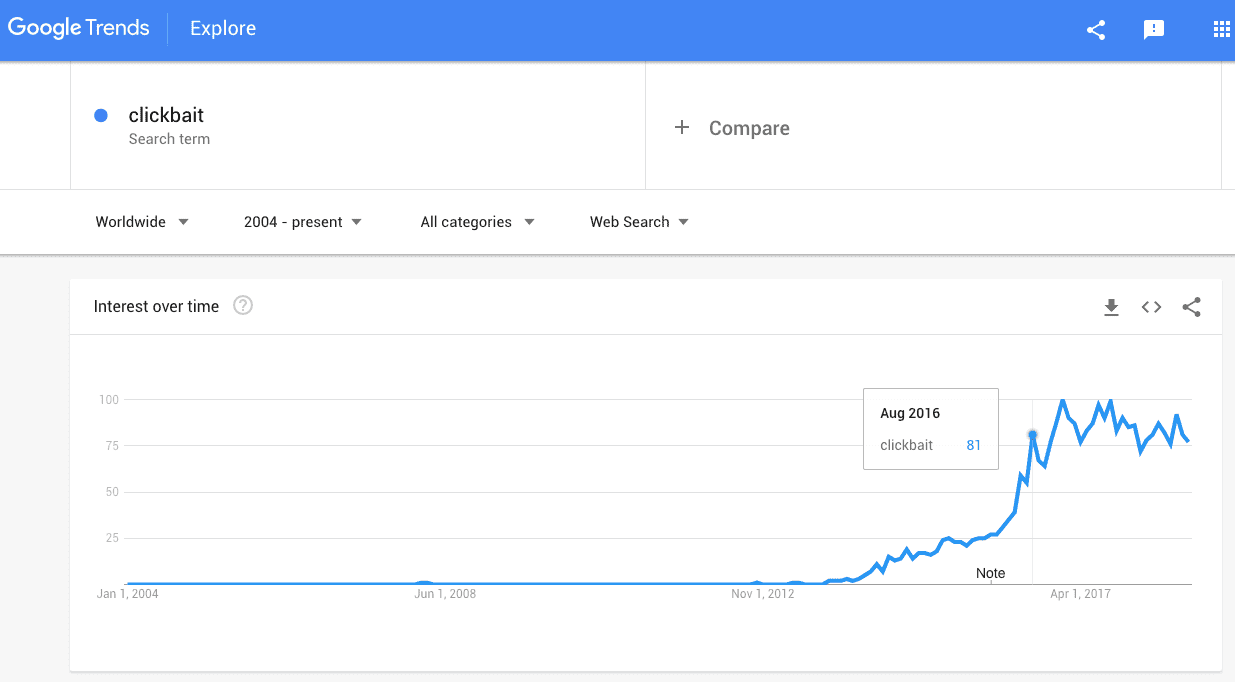|
Getting your Trinity Audio player ready...
|
A couple of years ago, thanks primarily to a few renegade publishers on Facebook, the term “clickbait” surged into the popular lexicon, forcing even the venerable Oxford English Dictionary to begrudgingly make space for it on its pages.
Since then, in spite of various controversies, data scandals and algorithm changes, clickbait has stayed put. But if Facebook’s recent moves are anything to go by, all that is about to change.

Earlier this month, Facebook removed over 500 pages and more than 250 accounts spreading fake news and clickbait.
Nathaniel Gleicher, Facebook’s Head of Cybersecurity Policy, and Oscar Rodriguez, Product Manager, explained in a blog post that Facebook took this action to stop “inauthentic activity” on the platform, which includes the spread of clickbait spam.
“A lot of the spam we see today is different,” they wrote. “The people behind it create networks of Pages using fake accounts or multiple accounts with the same names. They post clickbait posts on these Pages to drive people to websites that are entirely separate from Facebook and seem legitimate, but are actually ad farms.”
“The people behind the activity also post the same clickbait posts in dozens of Facebook Groups, often hundreds of times in a short period, to drum up traffic for their websites.”
Soon after, Facebook started cracking down on ads containing clickbait, and announced that any ads containing engagement bait, sensationalized language, or headlines that withhold information would be penalized.
Facebook says this intensified enforcement applies to all advertisers, but media, entertainment, and political ads may be impacted more, simply because these ad categories are more prone to using such methods.
Last week, the technology company told Poynter that it is now downranking stories with false headlines. Fact-checking outlets working with Facebook can discredit and slow down the spread of headlines that are false, even if the whole story isn’t.
This is “a change that adds nuance to the types of misinformation the platform is asking fact-checkers to flag,” says Daniel Funke, who covers fact-checking and misinformation for The Poynter Institute.
Adrien Sénécat of Les Décodeurs, one of Facebook’s fact-checking partners in France, told Poynter that the move would prove helpful in going after clickbait headlines they weren’t able to fact-check before.
It appears that Facebook has intensified its war on clickbait across multiple fronts, taking down pages, accounts, ads and stories with clickbait headlines, sensationalized language and misleading content.
Will clickbait survive the purge? If not—even if its spread and impact go down considerably—it would be welcome news for authentic publishers who pursue quality over clicks.
At a time when faith in Facebook is low—with one survey finding that 58% of users don’t trust the site—this is a step in the right direction to rebuild trust, although the company clearly has a huge job ahead of it.


